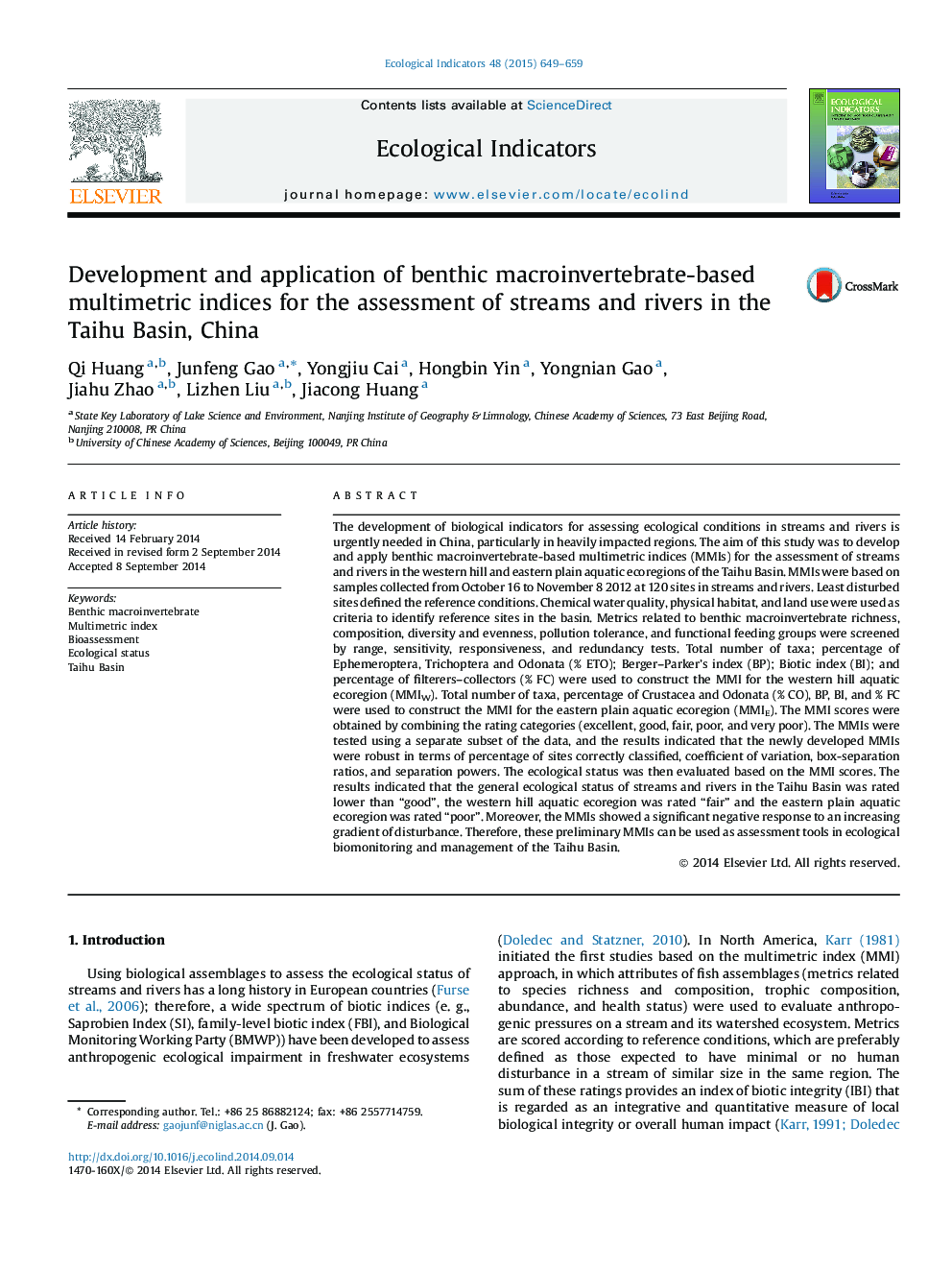| Article ID | Journal | Published Year | Pages | File Type |
|---|---|---|---|---|
| 6295129 | Ecological Indicators | 2015 | 11 Pages |
â¢Multimetric indices (MMIs) based on benthic macroinvertebrates were developed and applied in the Taihu Basin.â¢We developed two MMIs for two specific aquatic ecoregions in the Basin.â¢The MMIs were robust and sensitive to anthropogenic ecological impairment.â¢The general ecological status of the Taihu Basin was lower than “good” status.
The development of biological indicators for assessing ecological conditions in streams and rivers is urgently needed in China, particularly in heavily impacted regions. The aim of this study was to develop and apply benthic macroinvertebrate-based multimetric indices (MMIs) for the assessment of streams and rivers in the western hill and eastern plain aquatic ecoregions of the Taihu Basin. MMIs were based on samples collected from October 16 to November 8 2012 at 120 sites in streams and rivers. Least disturbed sites defined the reference conditions. Chemical water quality, physical habitat, and land use were used as criteria to identify reference sites in the basin. Metrics related to benthic macroinvertebrate richness, composition, diversity and evenness, pollution tolerance, and functional feeding groups were screened by range, sensitivity, responsiveness, and redundancy tests. Total number of taxa; percentage of Ephemeroptera, Trichoptera and Odonata (% ETO); Berger-Parker's index (BP); Biotic index (BI); and percentage of filterers-collectors (% FC) were used to construct the MMI for the western hill aquatic ecoregion (MMIW). Total number of taxa, percentage of Crustacea and Odonata (% CO), BP, BI, and % FC were used to construct the MMI for the eastern plain aquatic ecoregion (MMIE). The MMI scores were obtained by combining the rating categories (excellent, good, fair, poor, and very poor). The MMIs were tested using a separate subset of the data, and the results indicated that the newly developed MMIs were robust in terms of percentage of sites correctly classified, coefficient of variation, box-separation ratios, and separation powers. The ecological status was then evaluated based on the MMI scores. The results indicated that the general ecological status of streams and rivers in the Taihu Basin was rated lower than “good”, the western hill aquatic ecoregion was rated “fair” and the eastern plain aquatic ecoregion was rated “poor”. Moreover, the MMIs showed a significant negative response to an increasing gradient of disturbance. Therefore, these preliminary MMIs can be used as assessment tools in ecological biomonitoring and management of the Taihu Basin.
